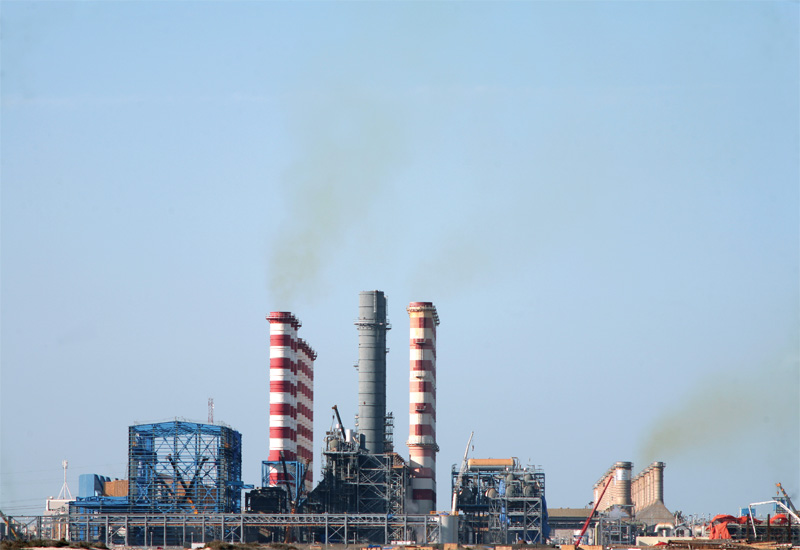Drinking Out
When it comes to restaurants, hotels and other F&B outlets, bottled water is king.
And with bottled water companies keen to get their market share, there are a great number of options for outlet managers to consider when choosing their offering.
“Restaurants have to strike a balance between whether a brand is the right fit for the outlet, both in terms of quality and image, and ultimately the price,” says Kumar.
“In some cases, particular characteristics of the water itself can make it especially suited to consumption with fine food. Our Speyside Glenlivet brand is drawn from the highest natural spring in Scotland and has one of the lowest mineral contents of any bottled water.

| Advertisement |
“Many great chefs choose this water because they feel its purity allows the taste of the fine food to shine through rather be influenced by the mineral content of the water.”
Renowned French chef and ambassador for Badoit, Thierry Marx says water selection is as important as wine selction in a restaurant.
“At Mandarin, we have developed a specific trolley for mineral waters. We offer an aromatised mix that we create in front of the client. Water is a noble product that we absolutely need to revalorise as an ingredient per se and not only consider as an additional sell.”
Heathcliff says choosing the right brand of water involves: considering “origin, quality and ingredients, popularity of the brand, taste, costs and guest preference.”
Of course with so many choices for restaurants, there is also a need to educate employees and in turn, guests.
To help restaurants make these choices, Tehfe says “many suppliers conduct educational seminars for the buyers on their water brands quality and safety”.
Heathcliff believes that the “numerous trainings organised by our suppliers” have allowed waiters at the restaurant to develop and now possess “high skills and knowledge” when it comes to pairing food with water.
“So far I don’t feel that this is a challenge for our staff, as we are focused on investing in their knowledge, which will help us to do better up-selling and meet a guest’s requirements,” says Heathcliff.
Our venue is always choosing the best suppliers who will offer the best training for staff; therefore I am satisfied from the educational programme and trainings from their side.”
But Nassour argues that the sector definitely “needs further education, the market is at its infancy”.
It’s a point that Tehfe agrees with and adds that gaining specialist knowledge in water “is still a challenge”.
“Especially educating guests,” he continues “local guests have specific preferences as well as western guests, which are hard to sway.
“People are less likely to take a recommendation on water than they would wine, for example,” he says.
Another part of the awareness programme is the adoption by many suppliers “using aggressive marketing campaigns, being sponsors for many prestigious sport, fashion, music and cultural events, and using famous persons as part of their campaigns”.
“Many suppliers are offering incentives for sales staff in order to increase overall sales,” he says.
“Aggressive marketing and advertising programmes, and staff training accompanied with incentives for the sales staff can lead through sales increasing and straightening the market position.”
It’s not only the outlets that get to choose which products they want to serve, suppliers have reasons to be picky as well in certain circumstances.
Tehfe says: “they are very conscious of their image and what the brand...represents”.
And some are getting it wrong Nassour says, adding “I’ve seen very premium water in retail where they should have never been”.
But for Kumar it is the consumer that will make the choice: “If they buy into the brand, and they feel that it provides value for money (for example they feel the price point is right for the quality of the product) they will buy it,” he asserts.
“I want my brands to be available in as many outlets as possible to enable consumers to make that choice. Clearly with a premium product, it is likely to have more resonance in outlets where consumers shop or dine. It is particularly important that we target presence in these outlets.”
While there are environmental issues surrounding water consumption in the Middle East, the sheer volume of demand means there is room for many bottled water companies and innovation in the market.
Water authorities certainly have work to do in both securing a better taste of product and convincing consumers the water is safe to drink.
In the meantime bottled water continues to grow from strength to strength and the more niche products that enter the market, the more educated the public will become.









 Search our database of more than 2,700 industry companies
Search our database of more than 2,700 industry companies









